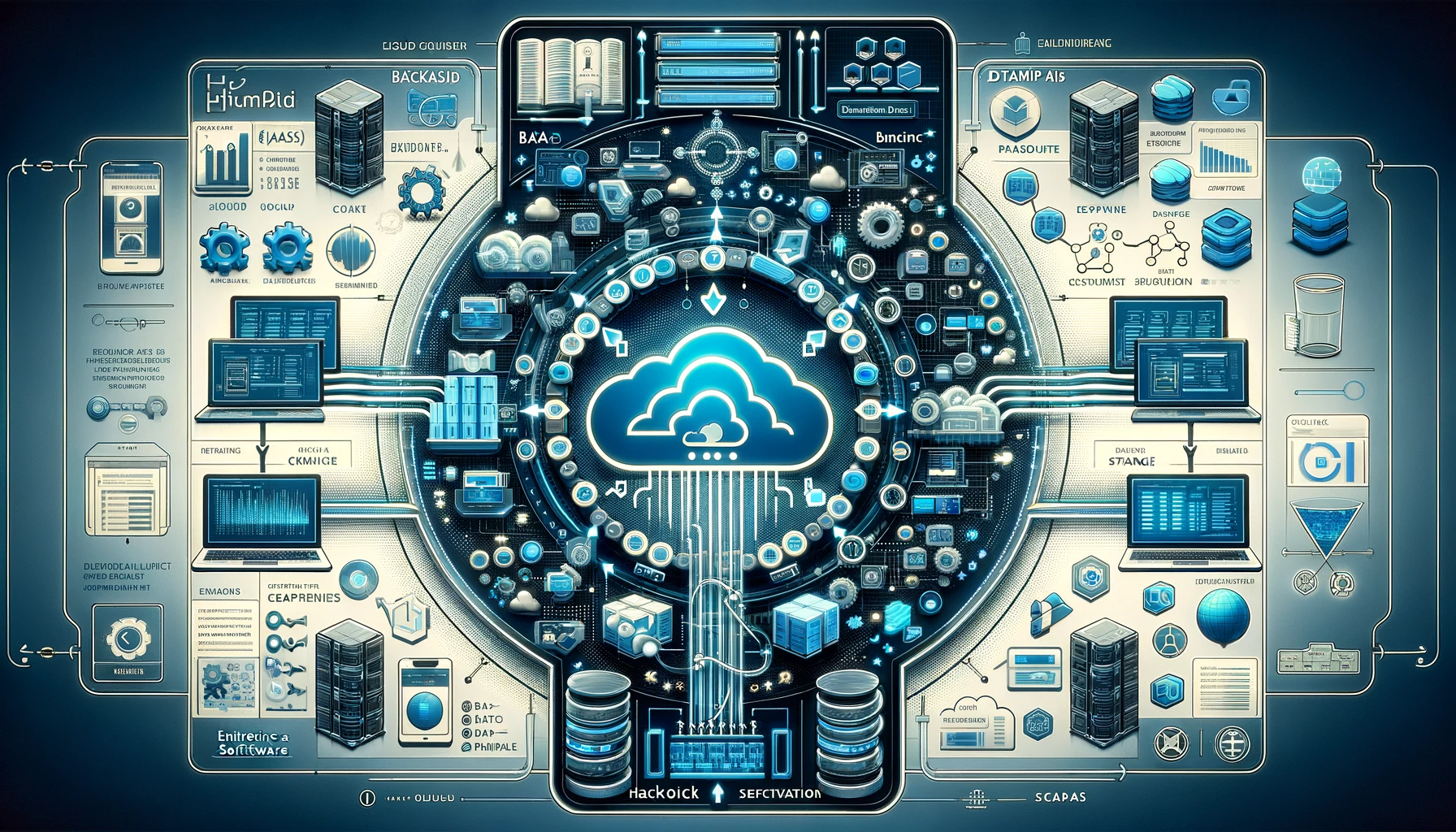Enhancing Data Management in Enterprise Software with Backend as a Service: A Technical Dive into StormAPI
In the rapidly evolving technological landscape, enterprises are continuously seeking advanced solutions to manage the deluge of data generated by their operations. The integration of Backend as a Service (BaaS) into enterprise systems has emerged as a pivotal strategy for addressing complex data management challenges. This article delves into the technical nuances of enhancing data management through BaaS platforms, using StormAPI as a case study to illuminate the tangible benefits and methodologies involved.
The Technical Landscape of Data Management Challenges
Contemporary enterprise software is characterized by its need to handle vast volumes of diverse data types, ranging from transaction logs and user interactions to real-time analytics. The traditional approach, involving on-premise servers and custom backend solutions, not only escalates operational costs but also imposes limitations on scalability and agility. Moreover, ensuring data security, compliance with international regulations, and seamless integration with existing legacy systems adds layers of complexity to data management practices.
StormAPI: Revolutionizing Data Management through BaaS
StormAPI emerges as a technologically advanced BaaS platform designed to mitigate these challenges by offering a comprehensive suite of backend services. At its core, StormAPI facilitates a modular, cloud-native architecture that enables dynamic scaling, robust security protocols, and extensive API integrations. By abstracting the complexity of backend infrastructure management, StormAPI allows enterprises to focus on leveraging their data effectively, rather than being bogged down by the intricacies of maintaining it.
Dynamic Data Synchronization and Real-time Databases
One of the hallmark features of StormAPI is its real-time database functionality, which employs WebSockets for dynamic data synchronization across client and server applications. This feature is instrumental in developing collaborative tools, real-time analytics dashboards, and interactive customer engagement platforms. The technical mechanism behind this involves an event-driven architecture, where data changes are instantly pushed to all connected clients, ensuring a seamless, real-time user experience.
Elastic Scalability with Cloud Infrastructure
StormAPI’s cloud-based infrastructure supports elastic scalability, a critical requirement for enterprise applications subjected to variable workloads. Leveraging containerization and orchestration technologies like Kubernetes, StormAPI dynamically allocates resources based on real-time demand, optimizing performance and cost-efficiency. This approach eliminates the need for manual scaling interventions, providing a seamless mechanism to handle peak loads during business-critical operations.
Enhanced Security Protocols and Compliance
Data security and regulatory compliance are paramount in enterprise data management. StormAPI addresses these concerns by implementing end-to-end encryption, secure access tokens, and compliance with standards such as GDPR and HIPAA. The platform’s security model also includes robust access control mechanisms, employing OAuth 2.0 and JWT (JSON Web Tokens) for secure authentication and authorization processes. These measures ensure that sensitive enterprise data is protected against unauthorized access and breaches, instilling confidence among stakeholders.
Seamless Integration with Existing Systems
Integrating BaaS solutions with legacy systems is often a technical hurdle for enterprises. StormAPI simplifies this process through extensive API support and SDKs available in multiple programming languages. This allows for the development of custom connectors and integration layers, facilitating seamless data exchange between StormAPI and existing enterprise systems. Moreover, the platform’s support for RESTful APIs and GraphQL enables flexible, efficient data retrieval and manipulation, catering to the diverse needs of enterprise applications.
Data Analytics and Insights
StormAPI goes beyond mere data storage and management, offering built-in analytics capabilities that enable enterprises to derive actionable insights from their data. The platform provides tools for monitoring usage patterns, user behavior, and system performance, empowering decision-makers with real-time data to inform strategic planning. This analytical prowess is supported by advanced data processing and visualization tools, allowing for the aggregation, analysis, and presentation of complex datasets in an easily digestible format.
Technical Case Study: Implementing StormAPI in Financial Services
Consider a financial services enterprise aiming to modernize its customer service platform. The integration of StormAPI enables the development of a highly responsive, secure application capable of handling real-time financial transactions, customer queries, and personalized service offerings. Utilizing StormAPI’s real-time database, the application ensures instant updates of account balances and transaction histories across all customer devices. The platform’s scalable cloud infrastructure dynamically adjusts to accommodate fluctuating transaction volumes, particularly during high-traffic periods. Furthermore, StormAPI’s comprehensive security features, including data encryption and secure authentication mechanisms, ensure the protection of sensitive financial information, aligning with regulatory standards and instilling trust among users.
The integration of Backend as a Service platforms like StormAPI represents a strategic inflection point in the evolution of enterprise data management. By offering a blend of scalability, security, and efficiency, StormAPI enables enterprises to navigate the complexities of modern data landscapes. This technical exploration underscores the transformative potential of BaaS solutions in enhancing the agility and innovation capacity of enterprise software. As businesses continue to grapple with the challenges of digital transformation, platforms like StormAPI will play an increasingly critical role in leveraging data as a strategic asset, driving growth,


Leave a Reply